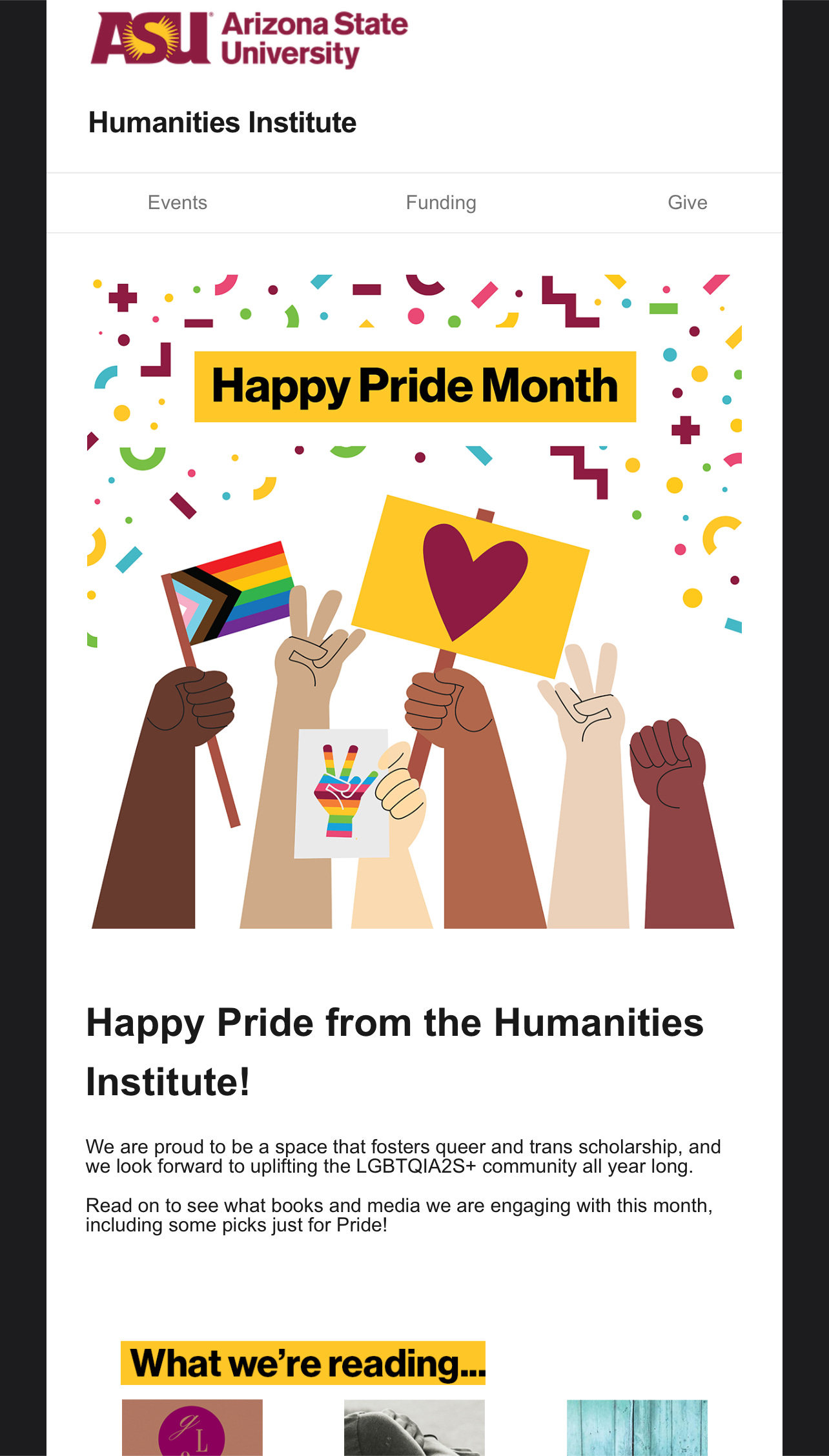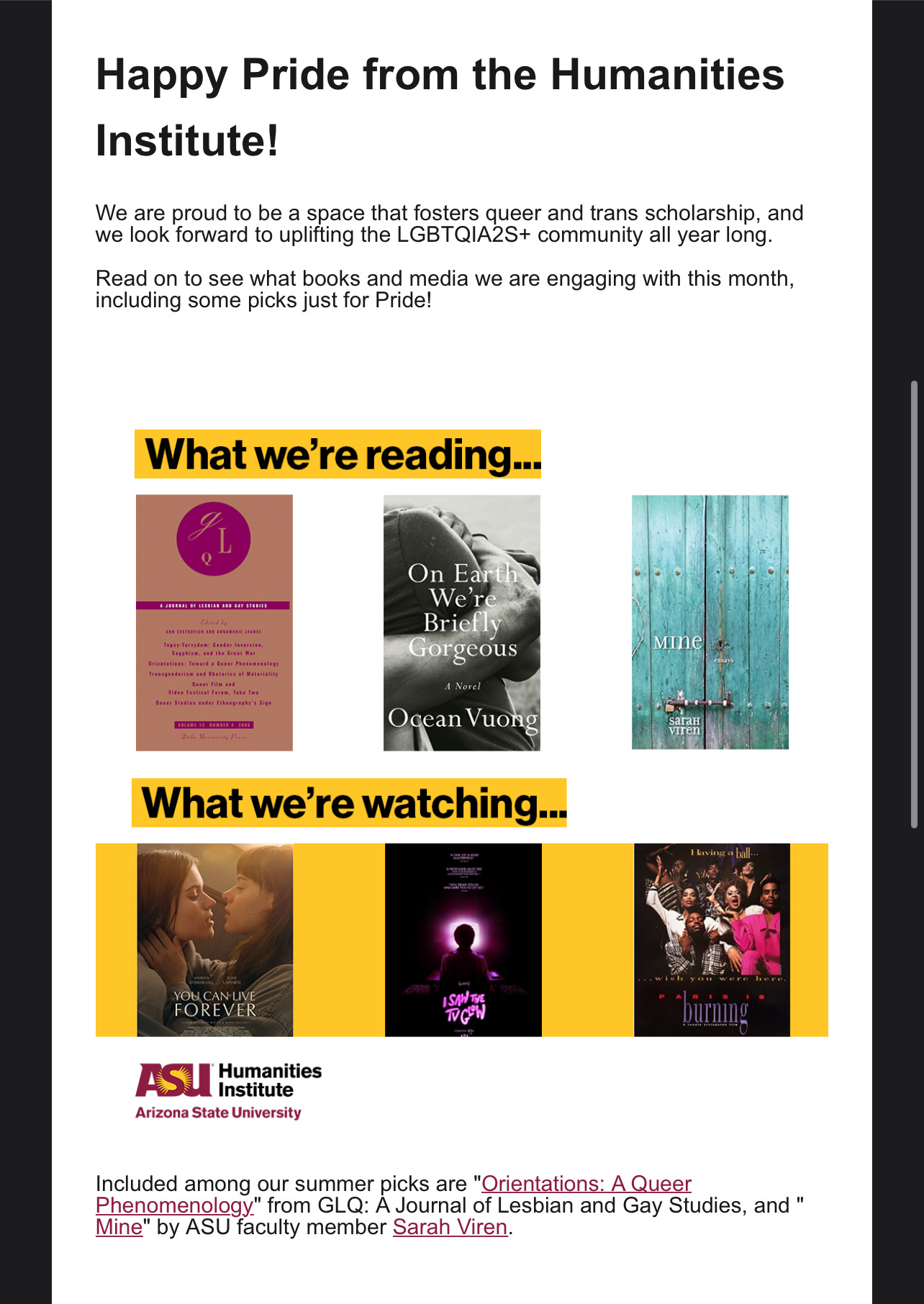Happy Pride Month!
from ASU Humanities
[Scene: First week of class. The professor stands at the front of the lecture hall, addressing the students.]
Professor:
Before we begin, let me be clear about one thing: do not cheat in this class. Cheating is wrong. It violates the ASU student code of conduct. If I catch you, you will fail the assignment, and possibly the course.
Student (raising hand):
Professor, can I ask a question? Just because someone wants to do something—say, cheat—doesn’t mean it's good to do it, right?
Professor:
Of course not. Wanting something doesn’t make it right.
Student:
Right. So even if I really want to cheat, I shouldn’t, because it's wrong. One reason it's wrong is that ASU says so in the student handbook.
Professor:
Exactly.
Student:
But… how do we know what the handbook really means? It was written a while ago in a different setting. We can’t really know the original authors’ intent. Why should we listen to some old institutional document anyway?
[A few students chuckle nervously. The professor looks slightly uncomfortable.]
Professor:
Well… because I say so. I’m the authority in this class.
Student:
But do you don’t obey God’s authority, why should we obey yours? But if you don’t submit to any higher authority yourself, why should students submit to yours? Isn’t that just your personal preference, dressed up as a rule?
Professor (defensive):
Because I’m giving the rational view that just because you feel like cheating doesn’t make it a good thing to do.
[The student holds up the professor’s pro-pansexual book with a smile. A few students laugh, “dang, that hurts!” The professor looks slightly uncomfortable.]
Parents and students, this is the kind of contradiction you may face in the modern university: a professor who denies objective moral authority, yet expects you to follow her subjective rules. A professor who claims meaning is uncertain, but demands obedience to her interpretation. A professor with an incoherent worldview—trying to teach you that worldview.
Are you a parent thinking of sending your child to ASU? Or perhaps you are a student interested in an education from the "#1 university for innovation." Maybe you’ve been intrigued by ASU’s claim to be inclusive.
You need to know the truth. An inclusive university would do just that—it would include without taking a position. But ASU claims that the sex philosophy of Alfred Kinsey and John Money is the truth of the matter. It encourages people to live the lifestyle represented by “Pride Month” without also warning them about the physical health risks and the dangers to their mental and spiritual well-being.
This email from ASU’s official Humanities Institute—meaning it’s sanctioned by the university itself, not just a student-run club—makes it clear that they are committed to promoting a particular lifestyle as a good and virtuous way to live.
What stands out most is their honesty about the material they’re reading and watching. That’s actually helpful. It gives you a chance to ask yourself, “Would I want to be in a class with a professor who considers this content wise and virtuous?”
I encourage you to carefully research potential humanities professors before enrolling in their classes. And once you're in class, don’t be afraid to respectfully ask: “Why do you promote this particular sex philosophy? Do you have any evidence that it leads to a good and meaningful life?”
Legislators, why are we paying state tax money to a public university to teach the Aldred Kinsey sex philosophy to all of its humanities students with no alternative voices?
Pastors, prepare your congregations for these lies. Teach them about the perfect paths of God that lead to peace, joy, and a good life. Alert them to the many temptations and snares that are laid in the paths of the young to push them into sexual immorality.



